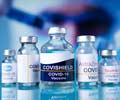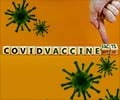A new observational study analyzed the effectiveness of the third dose of the COVID-19 vaccine for preventing severe outcomes in Israel.

‘A third vaccine dose is effective in reducing severe COVID-19-related outcomes compared to individuals who have received two vaccine doses.’





This may be due to the greater infectiousness of the delta (B.1.617.2) variant of SARS-CoV-2, and to waning immunity of vaccines administered months earlier. In the face of the current resurgence, several countries are planning to administer a third booster dose of the mRNA COVID-19 vaccine.This study is the first to estimate the effectiveness of the third dose of an mRNA COVID-19 vaccine specifically against severe outcomes with adjustment for various possible confounders, including comorbidities and behavioral factors.
The study’s large size also allows a more precise assessment of the vaccine’s effectiveness across different periods, different subpopulations (by sex, age, and several comorbidities), and different severe outcomes (which are rarer and thus require greater sample size).
The study took place from July 30, 2021, through Sept 23, 2021, coinciding with Israel’s fourth wave of coronavirus infection and illness, during which the Delta (B.1.617.2) variant was the dominant strain in the country for new infections (with very few exceptions).
Researchers reviewed data from 728,321 individuals aged 12 or above who had received the third dose of the BNT162b2 vaccine. These individuals were carefully matched 1:1 with 728,321 individuals who had received only two shots of the BNT162b2 vaccine at least five months prior.
Advertisement
Individuals were assigned to each group dynamically based on their changing vaccination status (198,476 individuals moved from the unvaccinated cohort into the vaccinated cohort during the study).
Advertisement
The results show that compared with individuals who received only two doses five months prior, individuals who received three doses of the vaccine (7 days or more after the third dose) had a 93% lower risk of COVID-19-related hospitalization, 92% lower risk of severe COVID-19 disease, and 81% lower risk of COVID-19-related death.
Vaccine effectiveness was found to be similar for different sexes, age groups (ages 40-69 and 70+), and number of comorbidities.
This study also included a population-level analysis which found that infection rates began to drop for each age group 7-10 days after that age group became eligible for the third dose.
Source-Medindia















